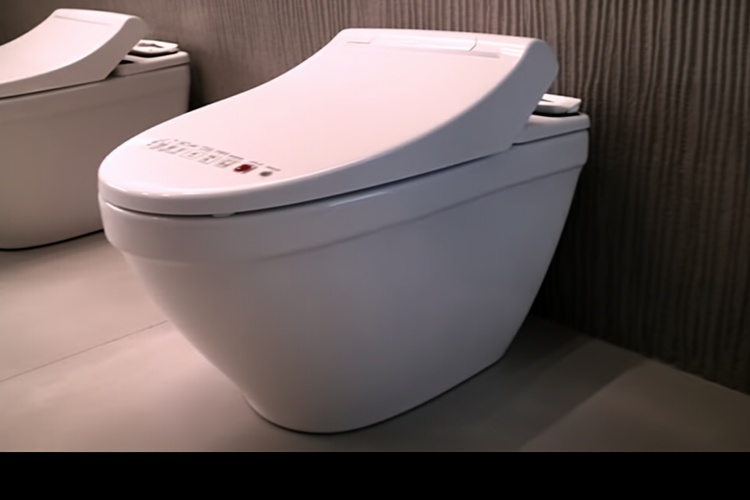The Complete Guide to Smart Toilets for UK Homes
In recent years, the bathroom landscape in the UK has been undergoing a quiet revolution, with Japanese-style smart toilets gaining popularity and transforming the way we think about personal hygiene. These innovative fixtures offer a range of features that promise to enhance comfort, improve cleanliness, and even contribute to better health. This comprehensive guide will explore the world of smart toilets, their benefits, and why they're becoming increasingly popular in UK homes.

What Exactly is a Smart Toilet?
A smart toilet, often referred to as a Japanese toilet or bidet toilet, is a high-tech bathroom fixture that combines traditional toilet functions with advanced features. These can include heated seats, built-in bidets with adjustable water temperature and pressure, air dryers, automatic flushing, and even health monitoring capabilities. Unlike traditional toilets, smart toilets are designed to provide a more hygienic, comfortable, and personalised bathroom experience.
How Do Smart Toilets Improve Hygiene?
One of the primary advantages of smart toilets is their superior hygiene capabilities. Most models feature a built-in bidet function that uses a stream of water to clean the user after use, eliminating or reducing the need for toilet paper. This not only provides a more thorough clean but also helps prevent irritation and the spread of bacteria. Many smart toilets also have self-cleaning nozzles and antibacterial coatings on the bowl, further enhancing their hygienic properties.
What Comfort Features Do Smart Toilets Offer?
Comfort is a key selling point for smart toilets. Features like heated seats can make cold winter mornings more bearable, while adjustable water temperature and pressure settings allow users to customise their cleaning experience. Some models even offer air deodorisation to keep the bathroom fresh and massage functions for a spa-like experience. Auto-open and close lids, nightlights, and hands-free flushing add convenience and reduce contact with germy surfaces.
Can Smart Toilets Help Save Water and Energy?
Despite their high-tech features, many smart toilets are designed with efficiency in mind. Dual-flush systems allow users to choose between a full or partial flush, saving water compared to traditional toilets. Some models use advanced flushing technologies that clean more effectively with less water. While smart toilets do use electricity for their features, many are designed to be energy-efficient, with options like eco modes to reduce power consumption when not in use.
What Health Benefits Can Smart Toilets Provide?
Beyond comfort and hygiene, some smart toilets offer health monitoring features. These can include analysing urine for signs of diabetes or dehydration, tracking bowel movements, and even measuring blood pressure through sensors in the seat. While these features are not a substitute for medical care, they can provide valuable insights and early warnings about potential health issues.
Which Smart Toilet Brands Are Available in the UK?
Several brands offer smart toilets in the UK market, each with their own unique features and price points. Here’s a comparison of some popular options:
| Brand | Model | Key Features | Estimated Price Range |
|---|---|---|---|
| TOTO | Washlet RX | Heated seat, warm water cleaning, air dryer, deodoriser | £1,500 - £2,500 |
| Geberit | AquaClean Mera | Whirlspray shower technology, orientation light, remote control | £2,000 - £3,000 |
| Grohe | Sensia Arena | Smartphone app control, automatic flush, night light | £2,500 - £3,500 |
| Duravit | SensoWash Starck f | Minimalist design, seat sensor, self-cleaning nozzle | £1,800 - £2,800 |
| Kohler | Veil | Touchscreen remote, UV sanitation, foot warmer | £3,000 - £4,000 |
Prices, rates, or cost estimates mentioned in this article are based on the latest available information but may change over time. Independent research is advised before making financial decisions.
Smart toilets represent a significant investment in bathroom technology, with prices ranging from around £1,500 for basic models to over £4,000 for high-end units with advanced features. While the initial cost may be higher than traditional toilets, many users find the long-term benefits in comfort, hygiene, and potentially reduced water and toilet paper usage to be worth the investment.
In conclusion, smart toilets are revolutionising UK bathrooms by offering enhanced hygiene, comfort, and even health monitoring capabilities. As awareness grows and prices become more competitive, it’s likely that these high-tech fixtures will become increasingly common in British homes. Whether you’re renovating your bathroom or simply looking to upgrade your toilet, a smart toilet could be a worthwhile consideration for improving your daily routine and overall bathroom experience.



